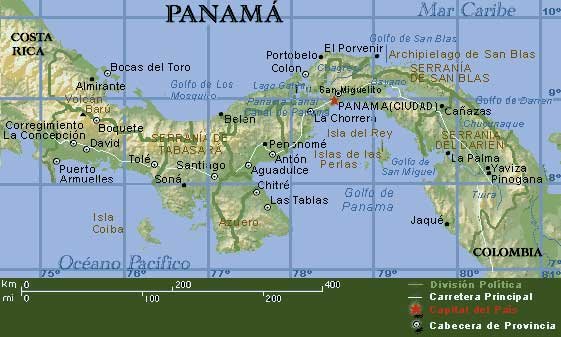Some say the point of traveling internationally is to see new sites, learn languages, or see other cultures. But one of the advantages of living internationally, like in the Peace Corps, is really
learning other cultures and changing your perspective so you see things from a new point of view.
Thanks to Elvis, the 12-year-old son of our neighbors, I had a chance to feel that change take place, and it clarified a lot of previous conversations and confusion.
We were sitting on our bench chatting about this and that, food here in the island compared to in Maryland, how supermarkets have everything (at least in Columbia, MD) you could want. And as often happens, talk drifted to how far away Maryland is from Panamá and how long that takes
por avion. If I thought it out, I could predict both sides of these conversations; the next question is almost always, "How much does the trip cost?"
My answer is that I'm not sure, I didn't pay for it, Peace Corps did, but I think around $600 (which is sometimes two months income for Elvis' family).
Generally in these discussions, there is a whistle, a nod, and perhaps a slightly confused look, but eventually, acknowledgement that it is
caro (expensive) and talk drifts on to other topics.
Elvis, however, was obviously contemplating something that didn't fit with my story. So he asked more questions. It took us a while before I understood, but we finally got there:
When do you pay the pilot?
And the light came on! Here in Panamá, there is an extensive bus system, with frequent and regular rides to and from Panamá City and between provincial capitals, and radiating from there into most small towns. But you don't buy a ticket; for most of them you just get on the bus, and as you get off, you pay the driver directly for the ride.
So from the point of view of a kid who has never seen an airport but has paid the driver numerous times after riding buses and boats, it was amazing to think the pilot would fly all those people that far and not collect money from them when they get off. (I'm sure it was also amazing to him to think I handed the pilot that much money and couldn't remember doing it!)
I thanked Elvis profusely for clarifying the confusion I'd seen on others and for changing my understanding and perspective; it was yet another way the world looks different (in fact, even a different way of looking at the world) in
campo Panamá compared to Columbia, MD.
So often, how you look at things is based upon what your past experiences. Thanks to Elvis, how I look at things has been broadened; now I will remember to think about the experiences of the other person and thus how they will see things, and maybe sometimes I'll need to explain a bit more.



